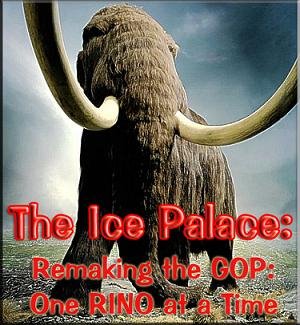The politics of "Global Inequality"?
In another exercise in liberal self-loathing, Madeleine Bunting of the Guardian writes this:
But perhaps an even bigger worry is that the politics of global inequality is characterised by a wishful naivety. Tony Blair's Commission for Africa in March last year posited its analysis of a turnaround in Africa on the existence of a new generation of African governments. From the start, some argued there was no such thing, and their voices have only grown louder in the summer, as the Ethiopian government, whose president was a member of the commission, shot dozens of demonstrators and detained thousands. More recently, criticism of Uganda's Yoweri Museveni has come to a head over the imprisonment of an opposition leader. A batch of books this year, including Matthew Lockwood's stinging analysis The State They're In and Martin Meredith's history of the past 50 years in Africa, point to the fact that most African governments have a poor, often abysmal, record of delivering development, and there's little reason to believe that has changed.What liberals don't realize, is that their own love affair with oppressive dictatorial governments contributes to world poverty more than anything else. Oh, sure, they'll have their Live-Aid concerts, Bono will go globetrotting to try to shame industrialized countries into forgiving debt; and Mike Farrell will be trotting about the morning alphabet talk shows, decrying the fact of how evil we are for not "sharing our resources". Yet liberals continue to embrace the oppressive systems of government that perpetuate these miseries.So there is fat chance that 2005 made poverty history. It finally offered a decent debt deal after 20 years of campaigning; there was a promise, yet to be fulfilled, to double aid by 2010; and there was a surprise goody thrown in - a hugely ambitious target for universal access to HIV/Aids treatment. In terms of G8 summits, it was a big deal; in terms of a breakthrough for Africa, forget it. Aids and climate change will ensure that the suffering of millions of Africans will plague our consciences for decades to come.
But for all its shortcomings, the coming-of-age of the politics of global inequality is being driven by an important issue that will ensure it stays on the international agenda: at its heart is a question of legitimacy. The west's global dominance is being challenged as unjust - whether that is by the World Trade Organisation's new bloc of leading developing countries or even by the fanatical violence of the Islamist extremists. The huge wealth generated by globalisation, with its equally huge ecological footprint, cannot largely be for the benefit of a tiny proportion of the world's population.
Increasingly we question our own legitimacy, as well as being called to account by others. 2005 spurred a new expectation across the developed world from the new campaigns in Japan to the US that politicians have to show they do more than just talk about it. That's no small achievement.
Money can be thrown at the problem of global poverty until the cows come home. There will never, I repeat never, be a solution to the problem until a healthy dose of freedom and capitalism--the very things that liberals loathe and despise, are interjected (yes, even forced) into the situation. Without those ingredients, Bono and other limousine liberals are assured of having a cause celebre ad infinitum.
But then again, liberals have never really been about solutions, have they?
(Filed under World Affairs, limousine liberals)















|